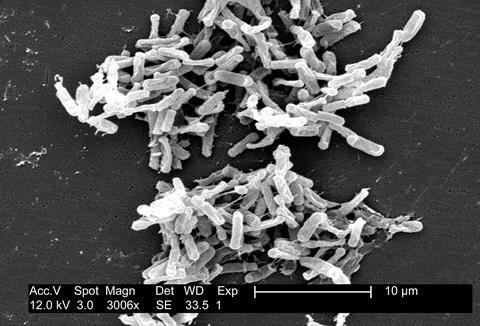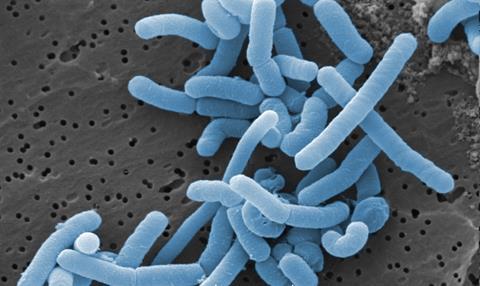Whipps et al. first defined the microbiome in 1988 as the community of all microorganisms living within a particular environment, including bacteria, viruses, and fungi. Since its recognition over 40 years ago, the microbiome has become increasingly popular in the laboratory and a hot topic in popular culture.
Over the last decade, there has been a paradigm shift from investigating single organisms and single target treatments towards studying the totality of an environment, as researchers have recognised the complex interactions between microbial communities and human health. Because of this, there has been an increase in the development of microbiome-based therapeutics and other products to help treat health conditions. As an exciting and rapidly growing field of biology, the microbiome has been harnessed for commercialisation, driving the development of microbiome-based therapies, such as probiotics, microbiome transplants, and treatments that target human health and well-being.
The microbiome was once confined to laboratory research; however, microbiome therapies have burst into the marketplace, turning scientific breakthroughs into everyday healthcare essentials. This article will explore some of the latest groundbreaking research in the microbiome space, and innovative treatments set to transform human health.
Faecal microbiota transplants (FMT)
FMT dates back to the 4th century in China, known as “yellow soup”, to treat severe diarrhoea and food poisoning. Today, FMT is a treatment involving the transfer of a stool from a healthy individual to a patient to restore the balance of microbes in the gut. Often, this therapy is used to treat severe recurrent Clostridioides difficile infections, where two rounds of antibiotics have failed to resolve the dysbiosis or patients are experiencing severe infections.
As a microbiota therapy, the modern FMT has been documented since the late 1950s; however, it was not until 2022 that the FDA approved the first FMT product, REBYOTA™, for commercial use against recurrent C. difficile infections. With further scientific investigations, there is increasing evidence of the utility of FMT for other conditions, such as inflammatory bowel diseases like ulcerative colitis. The LOTUS study highlighted the potential to induce ulcerative colitis remission in patients with active ulcerative colitis when oral FMT is administered after antibiotics. Whilst FMT shows promise in managing conditions such as inflammatory bowel diseases, work still needs to be done to validate the long-term efficacy of the therapeutic for sustaining remission in patients and to establish a clinical protocol for inflammatory bowel diseases.

Vaginal microbiome therapy
Like FMT, vaginal microbiome therapy has demonstrated its effectiveness in treating recurrent bacterial vaginosis, recurrent yeast infections, and other vaginal conditions. This occurs by transferring a healthy vaginal microbiome to a patient, which includes dominant strains of Lactobacillus, which are often found in the human vaginal tract. Bacterial vaginosis affects 5–15% of Caucasian women and 45–55% of Black women. Current treatments for bacterial vaginosis are biased towards antibiotics; however, in the USA, alternative treatments on offer include single and multi-strain probiotics in the form of oral tablets, suppositories, and gels, which helps to overcome vaginal dysbiosis.
In addition to bacterial vaginosis, bacterial imbalances in the vaginal tract have been attributed to infertility, miscarriages, and preterm birth. Since the pivotal move made by the FDA in 2022 approving the first FMT product, companies such as Freya Biosciences have conducted phase 1 clinical trials, transplanting donor strains (FB101), to overcome the loss of dominance of the Lactobacillus bacteria attributed to vaginal dysbiosis. Freya Biosciences has also presented a case study where vaginal microbiota transplantation was performed on a patient who had experienced several pregnancy losses. A successful pregnancy followed this transplantation, highlighting the potential of vaginal microbiota transplantation to improve reproductive outcomes.

Skin microbiome therapy
The skin is commonly referred to as the human body’s largest organ, serving as a barrier against the environment, temperature regulation, and sensation. Like any body site, factors can lead to skin conditions that require treatment, such as acne or dermatitis. These conditions are often treated using topical creams, antibiotics, or steroids. An alternative approach to treating these conditions is bacteriotherapy, which introduces beneficial bacteria to the skin to restore bacterial dysbiosis and promote the growth of beneficial bacteria that may produce anti-inflammatories.
AOBiome Therapeutics, a leading skin microbiome company, has conducted several phase 2 clinical trials using ammonia-oxidising bacteria to address inflammatory skin conditions such as atopic dermatitis. Their clinical trial highlighted the efficacy of B244, a live topical biotherapeutic. In addition, SkinBio Therapeutics developed the food supplement AxisBiotix, a live biotherapeutic taken orally to relieve symptoms associated with psoriasis and other skin conditions like acne. With up to 85% of people suffering from acne during their lives, skin microbiome therapy offers a solution for skin conditions without the need to use harsh antibiotics or topical steroids.








No comments yet